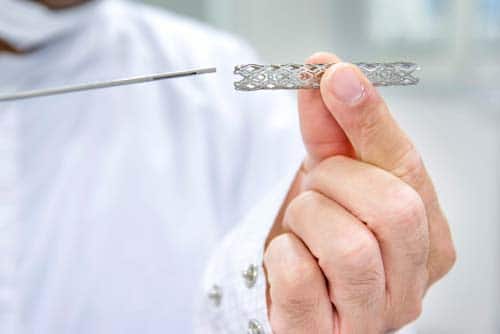What if you have a heart attack and all the top interventional cardiologists are out of town?
A new study shows that you’re better off.
Harvard Medical School researchers looked at what happens to heart attack victims when there is a big cardiology conference. That’s when top heart specialists are out of town. They are unavailable to treat patients.
You’d think death rates would go up, since these are supposedly the best cardiologists in the country.
Instead, they went down. More patients survived their heart attacks.1
Dr. Anupam Jena is an associate professor at Harvard Medical School. He led the study.
“The fact that mortality actually falls for heart attack patients during these conferences raises important questions,” he said.”
Dr. Jena’s team looked at changes in patient death rates on the dates of Transcatheter Cardiovascular Therapeutics. It’s the world’s largest interventional cardiology meeting. Hundreds of the nation’s top heart doctors leave their practices to attend.2
During the conference, heart attack death rates dropped by 1.5%.
This may seem like a small difference. But when you consider that 735,000 Americans have heart attacks each year, even a small drop in death rates means many lives are saved.3
The study suggests that if top cardiologists stayed away all year, there would be at least 10,000 fewer heart attack deaths a year. The research was published recently in the Journal of the American Heart Association.
Interventional Cardiologists May Do More Harm Than Good
Why do interventional cardiologists seem to do more harm than good? It comes down to one word…
Stents.
That’s the main treatment interventional cardiologists provide. Stents are tiny mesh tubes used to open heart arteries. They’re often inserted through a blood vessel in the groin or arm.
Dr. Jena noted in his study that the cardiologists who attend the conference were more likely to give their patients stents. Quality research has shown for years that stent procedures don’t work.4 5
One study was published in the journal The Lancet last year. .
Researchers at Imperial College London gave heart patients six weeks of drug treatment. After that, they either received a stent or had a placebo procedure in which no stent was implanted
It turned out that stents worked no better than a placebo. There was no difference in survival or angina pain.6
The findings confirm those from a major study in 2012. It followed more than 7,000 patients. Half got a stent and the other half made lifestyle changes and/or took medication.
The study showed that more stent patients (8.9%) went on to have heart attacks than those who didn’t have a stent (8.1%).7
So why do doctors keep performing the procedure?
Dollars for Stents
Hospitals make a lot of money from stent procedures. An average of about $36,000 for the hospital and doctors. And the procedure is easy and fast. It can take less than an hour, not including prep. So a surgeon can perform many in one day. 8 9
Dr. Nortin Hadler has been warning about the overuse of stents for years. He’s a professor of medicine at the University of North Carolina.
The reason doctors continue to implant stents is purely economic, he says. “The interventional cardiology industry has a cash flow comparable to the GDP of many countries and doesn’t want to lose it.”10
If your doctor recommends a stent, be suspicious…and be sure to get a second opinion.
Editor’s Note: There are safe and effective ways to protect your heart. Get the scoop on the real, natural solution that one cardiologist credits with restoring heart health to almost every single one of his patients.
Learn more now.
Like this Article? Forward this article here or Share on Facebook.
References:
1 https://medicalxpress.com/news/2018-03-survival-benefit-patients-cardiologists-academic.html
2 https://www.usatoday.com/story/news/nation/2018/03/09/cardiologist-away-then-you-might-more-likely-survive-heart-attack-study-suggests/407739002/
3 https://www.usatoday.com/story/news/nation/2018/03/09/cardiologist-away-then-you-might-more-likely-survive-heart-attack-study-suggests/407739002/
4 https://www.nytimes.com/2017/11/02/health/heart-disease-stents.html?rref=collection%2Fsectioncollection%2Fhealth&action=click&contentCollection=health®ion=rank&module=package&version=highlights&contentPlacement=1&pgtype=sectionfront&_r=0
5 https://medicalxpress.com/news/2014-12-heart-patients-fare-doctors.html
6 https://www.institutefornaturalhealing.com/2017/11/heart-stents-dont-work-make-big-bucks-surgeons/
7 http://www.nytimes.com/2012/02/28/health/stents-show-no-extra-benefits-for-coronary-artery-disease.html
8 http://health.costhelper.com/stents.html
9 https://www.sharecare.com/health/implantable-medical-devices-heart/how-long-does-a-stent-procedure-take
10 http://www.protectpatientsblog.com/2013/10/how_the_profit_motive_feeds_th_1.html

